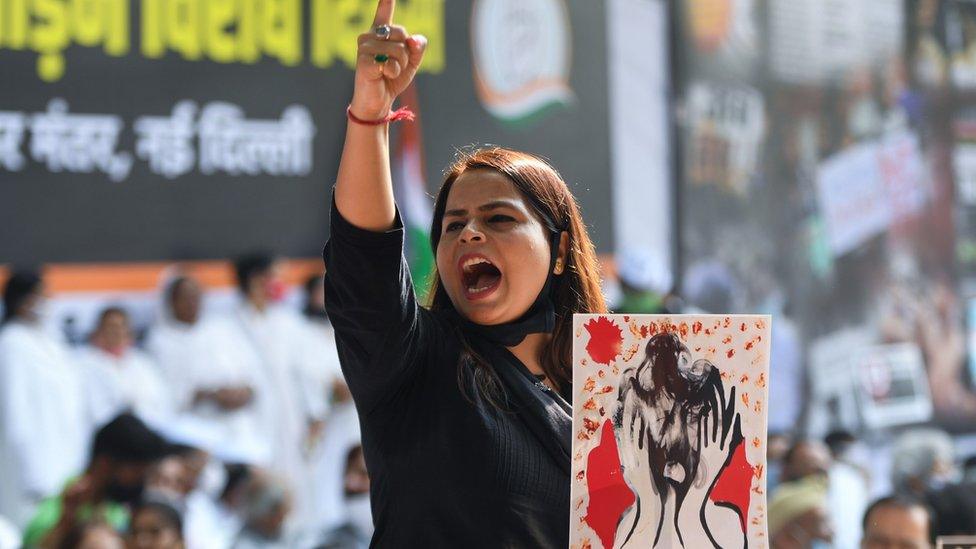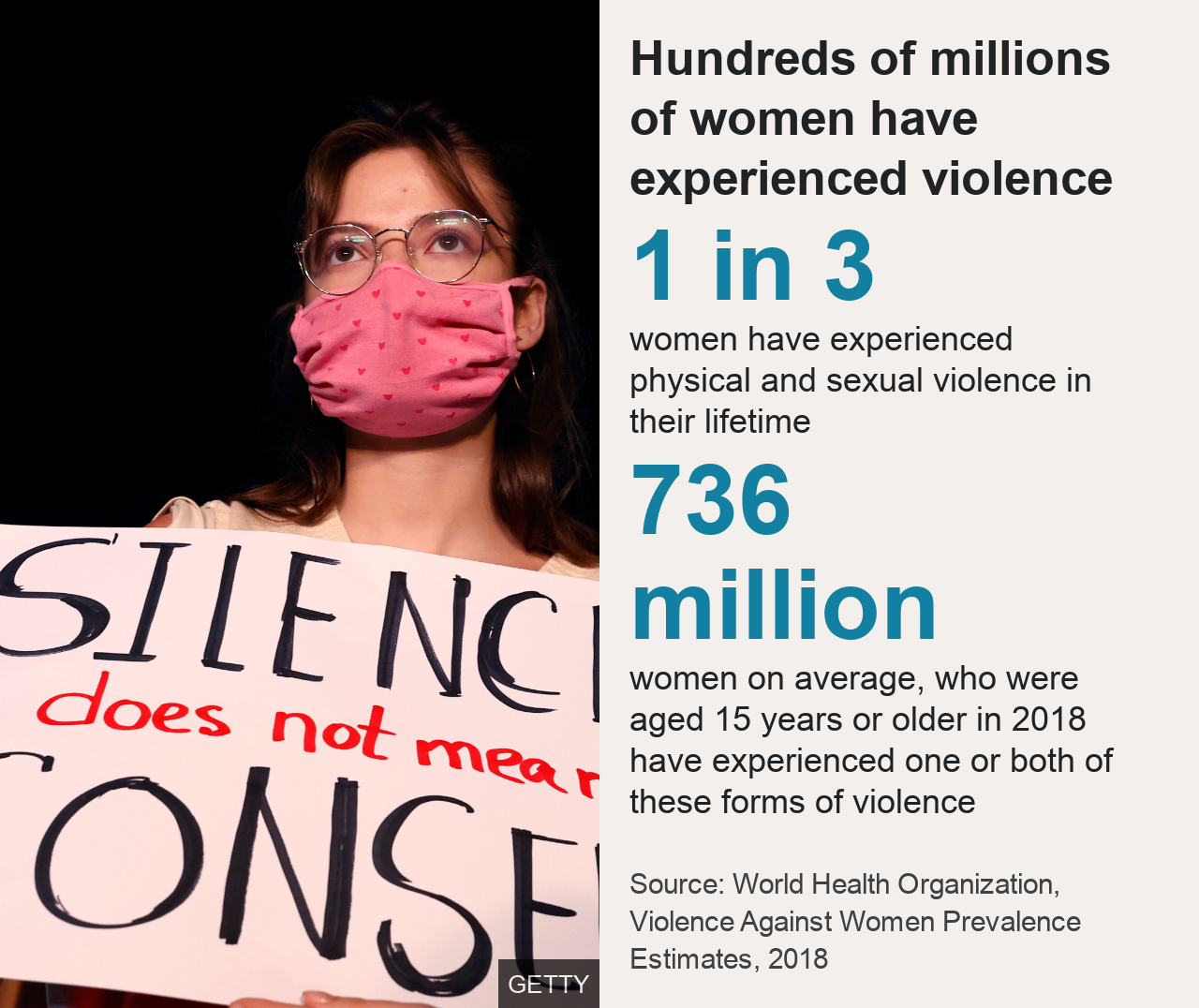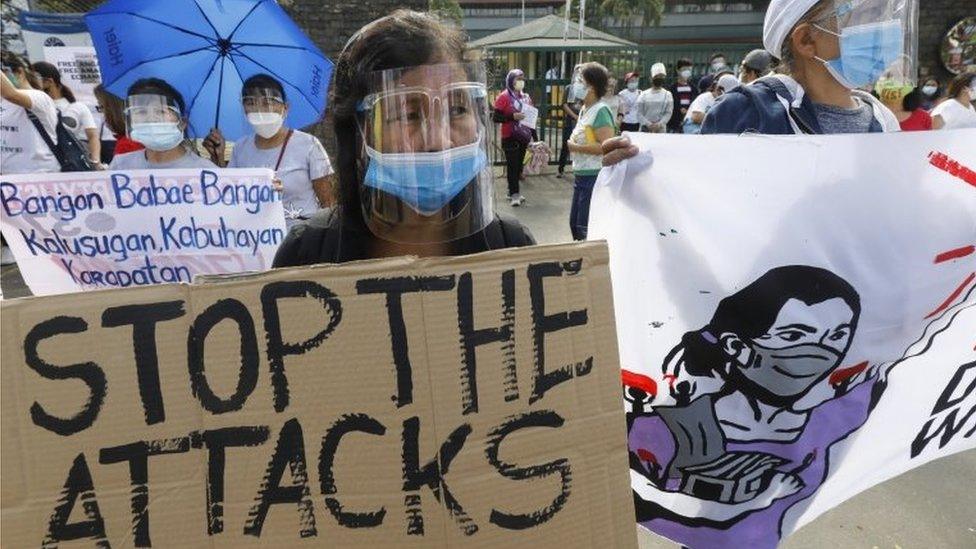One in three women are subjected to violence - WHO
- Published

One in three women globally, around 736 million, have been subjected to physical or sexual violence in their lifetimes, according to new analysis by the World Health Organization (WHO).
The new report suggests that, although the number of women affected by violence has remained largely unchanged since the last global WHO study in 2013, this violence starts at a young age.
One in four women aged between 15 and 24 years will have already experienced violence by an intimate partner by the time they reach their mid-twenties.
The WHO says this is the largest study ever done of its kind, updating previous estimates released in 2013. The organisation analysed data from existing surveys in 161 countries between the years 2000 and 2018 to produce these new estimations. The study does not include data from the Covid-19 pandemic.

Intimate partner violence was found to be the most widespread global form of abuse reported, with around 641 million women saying they had experienced it. However, 6% of women globally said they had been assaulted by someone other than their husband or partner.
"Violence against women is a global public health problem of pandemic proportions, and it starts at an early age," study writer Dr Claudia Garcia-Moreno told the BBC. "The number could be much larger as fear of stigma could be a barrier to many women reporting sexual violence."
Where are women more likely to be affected?
The report suggests women living in low-income countries including the Oceanic Islands like Fiji, southern Asia and sub-Saharan Africa are more likely to have experienced physical and/or sexual intimate partner violence in their life.

Protests like this one in Manila took place across the world on Monday to mark International Women's Day
Almost one in four women (37%) living in these countries were affected, but this dropped to around one in five women when it came to those living in Europe (16-23%) and central Asia (18%).
"Violence against women is endemic in every country and culture, causing harm to millions of women and their families, and this has been exacerbated by the Covid-19 pandemic," said Dr Tedros Adhanom Ghebreyesus, WHO director general. "But unlike Covid-19, violence against women cannot be stopped with a vaccine."
The impact of the pandemic
The study authors noted "while the numbers reveal already catastrophically high rates of violence against women and girls", they do not reflect the ongoing impact of the coronavirus pandemic.
Speaking exclusively to the BBC, United Nations Under-Secretary-General and Executive Director of UN Women Phumzile Mlambo-Ngcuka said violence against women was "one of the most widespread, persistent and devastating human rights violations in our world today".
"Since the outbreak of Covid-19, emerging data and reports have shown that all types of violence against women and girls, particularly domestic violence, has intensified in what we have called the Shadow Pandemic," she said.
"Today's report and the impact of the Covid-19 pandemic show that measures need to be stepped up to eradicate violence against women and girls, once and for all."
Next steps
The WHO report calls on UN member states to partner with civil society organisations to ensure services are available to vulnerable women, and funding is made available for the continued collection of data for improvement of services and programming.
"We would like to see increased will and investment, and a renewed commitment from governments to eliminating violence against women," said Dr Claudia Garcia-Moreno.
"I hope these numbers are a wake-up call to governments. There was talk five years ago, but more action in now needed if we are to meet Sustainable Development Goals targets of eliminating violence against women by 2030."